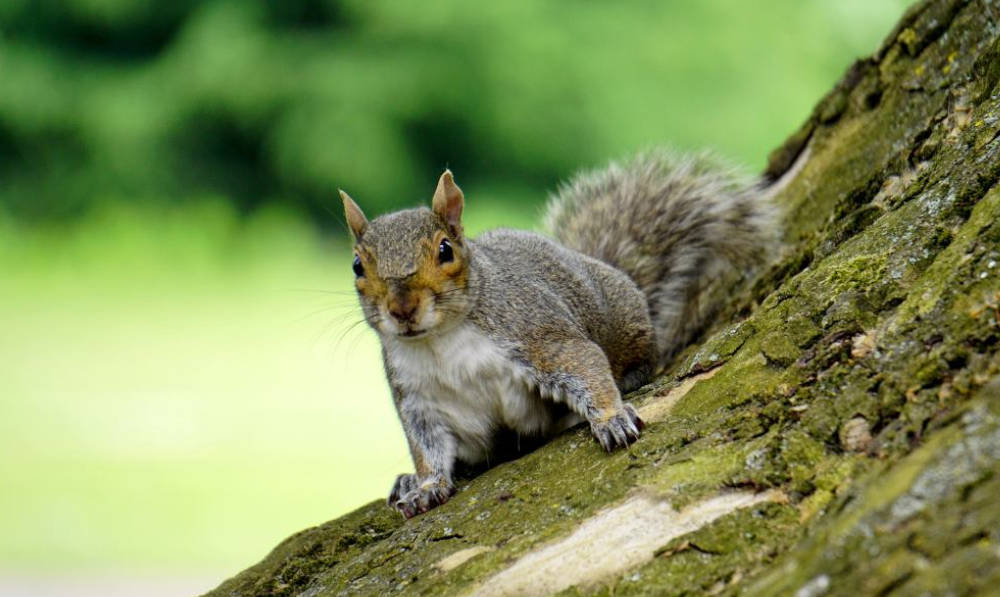KEY TAKEAWAYS:
Seal Entry Points: Inspect and secure any gaps, cracks, or holes in your home’s exterior with materials like steel mesh or caulk to prevent squirrels from entering.
Trim Trees: Keep tree branches at least six to eight feet away from your roofline to limit squirrels’ access to your roof and attic.
Squirrel-Proof Bird Feeders: Use squirrel-proof bird feeders and place them on poles with baffles to prevent squirrels from accessing bird food.
Natural Repellents: Apply natural repellents such as cayenne pepper, garlic, or commercial sprays around your garden and home to deter squirrels.
Protect Plants: Cover garden beds with netting or chicken wire to prevent squirrels from digging up bulbs and nibbling on plants.
When squirrels they invade your home and garden, they can become a nuisance.
Squirrels are known for their ability to chew through almost anything, dig up gardens, and create nests in attics.
To maintain a peaceful coexistence with these furry intruders, here are some effective tips for protecting your home and garden from squirrels.
1. Secure Your Home’s Exterior
Squirrels are expert climbers and can easily find entry points into your home. Inspect the exterior of your house for any gaps, cracks, or holes, particularly around the roofline, vents, and chimneys.
Seal these entry points with materials such as steel mesh, hardware cloth, or caulk. For chimneys, install a chimney cap to prevent squirrels from entering.
2. Trim Trees and Branches
Squirrels often use overhanging tree branches as bridges to access your roof. Trim any branches that hang near or touch your house. Ideally, keep branches at least six to eight feet away from your roofline.
This reduces the likelihood of squirrels leaping onto your roof and finding a way into your attic.
3. Install Squirrel-Proof Bird Feeders
Bird feeders can be a major attraction for squirrels. To keep them at bay, invest in squirrel-proof bird feeders. These feeders are designed to be difficult for squirrels to access while allowing birds to feed comfortably.
Consider placing bird feeders on poles equipped with squirrel baffles to prevent them from climbing up.
4. Use Natural Repellents
Several natural repellents can deter squirrels from your garden and home. Sprinkling substances like cayenne pepper, garlic, or vinegar around the perimeter of your garden or flower beds can create a smell that squirrels find unpleasant.
Commercial squirrel repellents are also available and can be sprayed around areas where squirrels are active.
5. Protect Garden Plants
Squirrels love to dig up bulbs and nibble on tender plants. To protect your garden, cover bulbs with a layer of chicken wire before planting. This prevents squirrels from digging them up while still allowing the plants to grow through the wire.
Use netting or garden cloth to cover vegetable patches and flower beds, creating a physical barrier between squirrels and your plants.
6. Secure Garbage Bins
Squirrels are opportunistic feeders and will rummage through garbage bins for food scraps. Ensure your garbage bins have tight-fitting lids and are made of sturdy materials that squirrels cannot chew through.
Consider using bungee cords or weights to keep the lids securely fastened.
7. Create a Squirrel-Free Zone
In your yard, designate specific areas where you want to deter squirrels and focus your efforts there. For example, you can use motion-activated sprinklers or ultrasonic devices to scare squirrels away from specific garden beds or patio areas.
These devices are effective at startling squirrels without causing them harm.
8. Maintain Cleanliness
Squirrels are attracted to food and shelter. Keep your yard and home clean and free of potential attractants. Regularly clean up fallen fruits, nuts, and seeds from your garden. Store pet food and birdseed in squirrel-proof containers.
Inside your home, promptly clean up crumbs and spills that might attract squirrels.
9. Consider Professional Help
If you have a persistent squirrel problem that you cannot manage on your own, consider hiring a professional pest control service. These experts can assess the situation, remove any squirrels humanely, and provide advice on long-term prevention measures.
10. Enjoy Squirrels from a Distance
While it’s essential to protect your home and garden, it’s also important to appreciate these animals from a distance.
Setting up a separate squirrel feeder away from your garden can provide them with an alternative food source, keeping them away from your plants while allowing you to enjoy watching them.
By implementing these tips, you can create a harmonious environment where both you and the squirrels can coexist peacefully.
Remember, the key is to make your home and garden less appealing to them without causing harm, ensuring a balanced ecosystem in your backyard.

